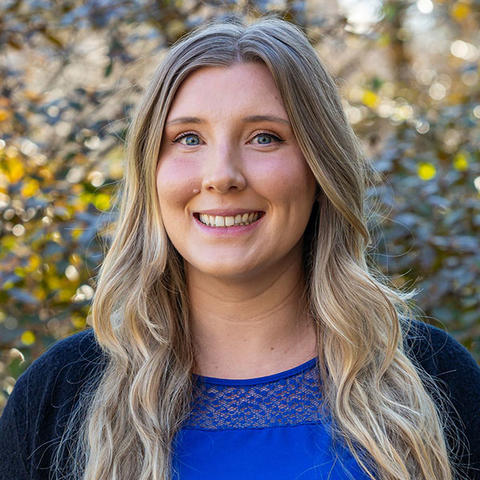Mackenzie Tygh ‘23 shares Fulbright insights

Details
Mackenzie Tygh ‘23 was recently offered a Fulbright grant to pursue a Master’s of Artistic Creation with a concentration in Performing Arts at the Université Grenoble Alpes (UGA) in France. Although she ultimately decided to pursue a doctoral degree in the U.S. instead, Mackenzie shared her proposed Fulbright project and advice for prospective Fulbright applicants. As someone who applied twice and was successful the second time, her insights can be helpful for those applying!
Why did you choose to apply for the Fulbright?
Having been trained in a liberal arts context as a Physics major at Haverford College, I am committed to bridging different disciplines and areas of knowledge. My decision to reapply for the Fulbright program demonstrated this dedication to continue exploring new forms of interdisciplinary engagement between the sciences and the humanities. Université Grenoble Alpes’ (UGA) reputation as a leading center for interdisciplinary studies was therefore appealing to me as I considered which award to apply for.
What was your proposed project?
My Fulbright project centered on Jules Verne's theatrical work, "Le Voyage à travers l’Impossible" (1802), inspired by his renowned "Voyages Extraordinaires" series. This play follows Georges Hatteras as he travels to the center of the Earth, the depths of the ocean, and even to another planet. My project proposed a contemporary reinterpretation of this classic play as a modern dance performance. By integrating choreography, digital visualization techniques, and innovative costume design, I sought to explore the interdisciplinary possibilities that emerge when 21st-century technology converges with performance, similar to Verne’s 19th-century counterpart. Central to my project was animating the dancing body through data collection and visualizations, creating new artistic expressions that explore themes of bodily transformation and identity. Through this approach, I aimed to inform our understanding of the body as a significant marker of the complex interplay between scientific advancement, cultural interpretation, and power dynamics.
Why did you choose France as the place to study this topic?
I selected France due to the country’s rich cultural production, especially during the time period of Jules Verne. "Le Voyage" showcases Verne's fascination with the possibilities offered by science, a predominant theme in 19th-century French cultural discourse. I hoped to gain deeper insights into Verne's work and its interdisciplinary significance, while also contributing to the ongoing dialogue surrounding art, science, and technology.
What were your biggest takeaways from the application process?
A major difference between my first and second Fulbright application cycles was the insight I had acquired into the program’s objectives, criteria, and expectations during the second cycle. By “decoding” the Fulbright application process for myself, I succeeded in crafting and conveying a narrative that clearly aligned my academic and personal experiences with these insights.
What advice do you have for students/alumni considering applying for a Fulbright?
I recommend starting the application process as early as possible. The Fulbright application is a complicated and demanding endeavor, so it is crucial to give yourself plenty of time for research, reflection, and multiple rounds of revision. I also advise selecting two or three individuals to review your materials, ideally those who know you well and can provide constructive criticism to help refine your application. Reaching out to scholars who are experts in your proposed field or topic can be immensely beneficial. Many are generous with their time and expertise, and their feedback can support you in focusing your research proposal. Lastly, embrace the opportunity to step outside your comfort zone and pursue your academic interests boldly, even if you feel you lack traditional qualifications in your proposed field or topic!
What are your plans for next year?
Next year, I will begin my PhD in Italian Studies at Johns Hopkins University. Through my doctoral studies, I hope to foreground the importance of integrating humanistic perspectives into scientific discourse, and vice versa. I believe that this approach aligns with the changing landscape of academia and resonates with my aim to not only break down traditional barriers but also to build bridges that inspire increased interdisciplinary collaboration.




